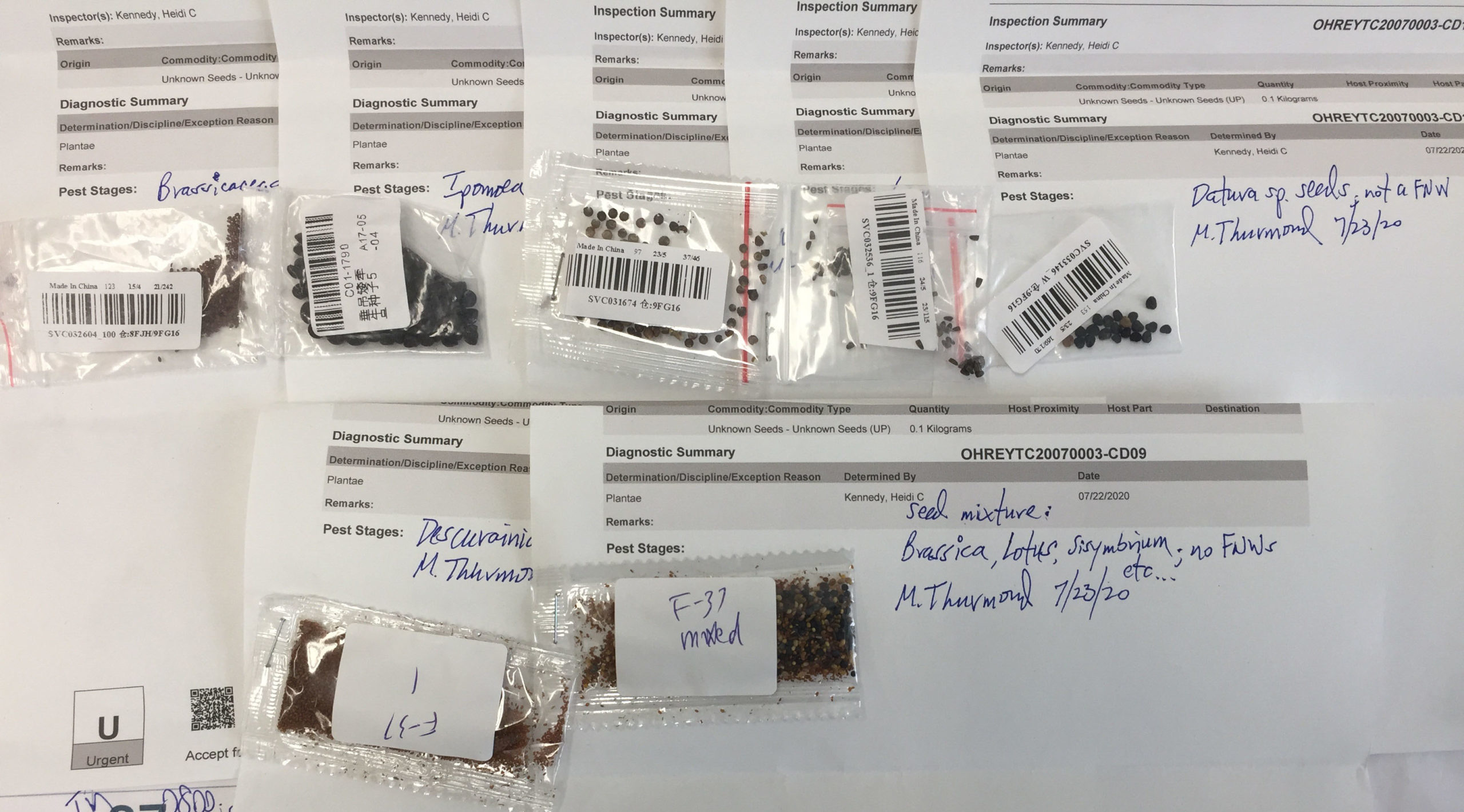
Aug 4, 2020
USDA describes species of unsolicited seeds mailed to consumers
USDA officials continue to investigate mysterious seed packages, that show up, unasked for, in consumers’ mailboxes.
While much remains unknown, the Department of Agriculture’s Animal and Plant Health Inspection Service (APHIS) did publicly describe the seeds in a Q&A document posted July 31.
“Based on our preliminary analysis of the seed samples we’ve already collected, the seed packets appear to be a mix of ornamental, fruit and vegetable, herb, and weed species,” according to the USDA document.
“We are working to quickly collect and test as many seeds as possible to determine whether these packets present a threat to U.S. agriculture or the environment,” according to the USDA document. “As we collect the seed packages, we are routing them to APHIS botanists who are examining the seeds to determine their species. Depending on the species and the potential risk it poses to U.S. agriculture, APHIS may test the seeds for pathogens that can cause plant diseases.”
APHIS said some 22 states have received the seeds, and other countries such as Canada, Australia and member nations of the European Union have also reported receiving unsolicited seed packages. The seed packages seem to be coming from China, but the USDA said it’s also received reports of packages coming from other countries. The recipients seem to be individuals who recently purchased something online, the USDA said.
Seeds for planting are a concern because they can carry viruses or other diseases, the USDA said. Imported vegetable or agricultural seed is restricted by labeling and phytosanitary requirements and is inspected borders at by APHIS and U.S. Customs and Border Protection (CBP) at ports of entry.
“Some seeds, including citrus, corn, cotton, okra, tomato, and pepper seed, are restricted and may require an import permit, phytosanitary certificate, inspection at a USDA Plant Inspection Station, or testing to ensure any potential risks are mitigated,” according to the USDA document. “Certain seed species are considered so high risk that they are prohibited. For example, true botanical seed of potato is not enterable from any country except Canada and certain areas of Chile and New Zealand.”
While the U.S.’s multi-agency investigation continues, the USDA’s document said July 31 they had not identified any link to agro-terrorism.
“At this time, we don’t have any evidence that this is anything other than an internet ‘brushing scam,’ where sellers send unsolicited items to unsuspecting consumers and then post false reviews to boost sales,” according to the USDA’s document. “Brushing scams involving seed packets in international mail shipments are not uncommon. U.S. Customs and Border Protection (CBP) has intercepted similar seed shipments in recent years.”
Individuals who receive seeds are asked to save the seeds and package they came in, including the mailing label, and should mail them to state officials for inspection. The packets should not be opened and the seeds should not be planted.
More information is available at https://www.aphis.usda.gov/publications/plant_health/fs-unsolicited-seeds-public-package-shipping-destinations.pdf .
Above, at the USDA Animal and Plant Health Inspection Service (APHIS), National Identification Services (NIS) coordinates the identification of plant pests in support of USDA’s regulatory programs. At the NIS Lab in Beltsville, Maryland, APHIS Plant Protection and Quarantine (PPQ) botanists analyze and catalog seed samples received, unsolicited, from overseas. Accurate and timely identifications provide the foundation for quarantine action decisions and are essential in the effort to safeguard the nation’s agricultural and natural resources. Photo: USDA






